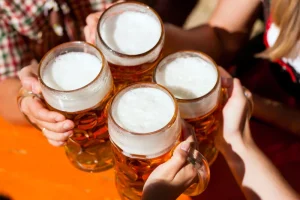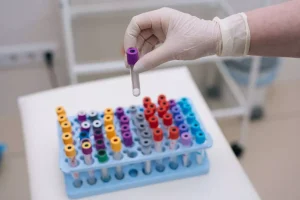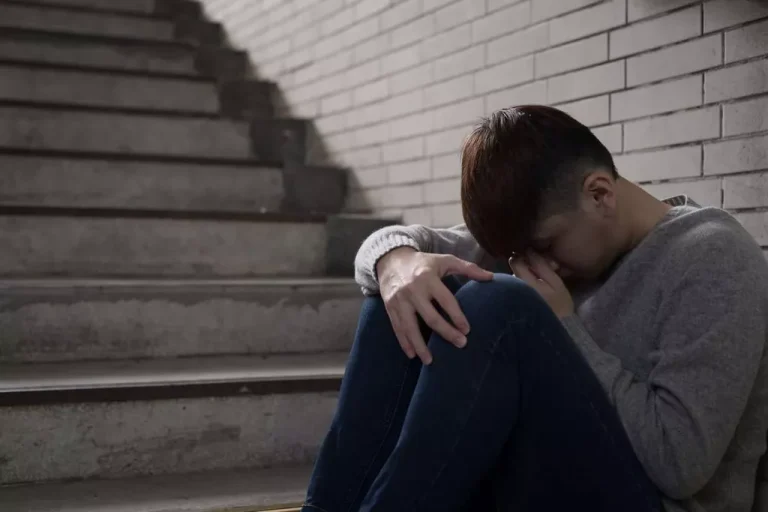Taking a Break from Alcohol Can be Good for Your Health National Institute on Alcohol Abuse and Alcoholism NIAAA

Remove all alcohol from your home or ask a friend or family member to do it for you. This includes beer, wine, and liquor, as well as products that contain alcohol such as rubbing alcohol and vanilla extract. The most severe symptoms tend to disappear within days, whereas less intense ones may last longer. This may include medications, therapy, or both and can be offered in a variety of settings, both inpatient, outpatient, or a hybrid model. AWS can evolve in a few hours or a few days but often develops between 6 to 24 hours after your last drink.
Medication-assisted treatment (MAT)
Family and friends can provide encouragement and support when you stop drinking. By opening up about your relationship with alcohol, you might also encourage others to explore their own drinking habits. To stop drinking alcohol, you first need to understand your relationship with drinking. From there, you may need social support, consistent self-care, and new routines that can help redirect your mind.
- For those with alcohol use disorder, withdrawal is just the first (but very important) step on a long journey to recovery.
- But if you’ve gone through alcohol withdrawal once, you’re more likely to go through it again the next time you call it quits.
- The way alcohol is glamorized in advertising also contributes to our collective hook.
- By avoiding alcohol, you’re taking a big step toward improving physical health.
Take note of your mental health

There is no exact timeline for alcohol withdrawal, and individual factors, such as the level of dependence on alcohol, will influence it. Symptoms can range in severity, and it’s essential to have your symptoms evaluated by a medical professional. If you have severe symptoms, you may require inpatient or even intensive care level monitoring.

Different Drinking Levels
Try to remember that you don’t have to feel shame about your experience. AUD is very common, affecting an estimated 76.3 million people worldwide. By reading up on alcohol withdrawal and learning more about treatment and self-help options, you’ve taken an important step toward recovery. If you’re a heavy drinker, you might notice symptoms of alcohol withdrawal as soon as eight hours after going sober. If your vacation from alcohol is temporary, proceed with caution when you start drinking again. “Even moderate drinkers who stop drinking for two months tend to overdrink when they start again,” Dr. Koob says.
After 3 Days Without Alcohol
Legal consequences often affect future opportunities such as employment, admittance to academic programs, or studying abroad. You might run into obstacles along the way that tempt you to drink. Keep in mind the reasons you chose to cut back on or quit alcohol. https://ecosoberhouse.com/ If you turn to alcohol to manage emotional distress, the added overwhelm can prompt the urge to drink, making success seem even more out of reach. What’s most important is looking at your drinking habits and finding a way to cut back that works for you.
- You’ve probably noticed that alcohol impacts mood in a few different ways – as it is a depressant, we can feel a bit flat or down if we’re drinking regularly.
- Alcohol has what doctors call a depressive effect on your system.
- Turner notes the importance of bringing along a trusted support person when attending events that involve alcohol.
Benefits Beyond 30 Days of No Alcohol
Alcohol use disorder is a chronic, lifelong, relapsing illness undermining happiness, work, relationships, and free will. Common medications include benzodiazepines to help treat symptoms like anxiety, insomnia, and seizures. You might also take anti-seizure meds and antipsychotics, along with other drugs. If your liver has taken a hit from prolonged alcohol use, there are ways to give it — and the rest of your body — a break. Your liver has enzymes that work like special tools to help metabolize (break down) different toxins that enter your body, such as alcohol.

For instance, Dasgupta cited research he conducted on the relationship between genetics and alcohol misuse. He noted that people of Chinese and Indian descent do not benefit from drinking alcohol due to a genetic reason that isn’t fully understood. Many people struggle to achieve lasting recovery from alcohol dependence, highlighting taking a break from alcohol the need to individualize patient treatment based on their life history, genes, coexisting illnesses, and other issues. “Evaluation of the patient for co-existing medical and psychiatric diseases is an important part of the assessment of patients with AUDs, but too often ignored or complicated by detoxification,” said Rummans.
